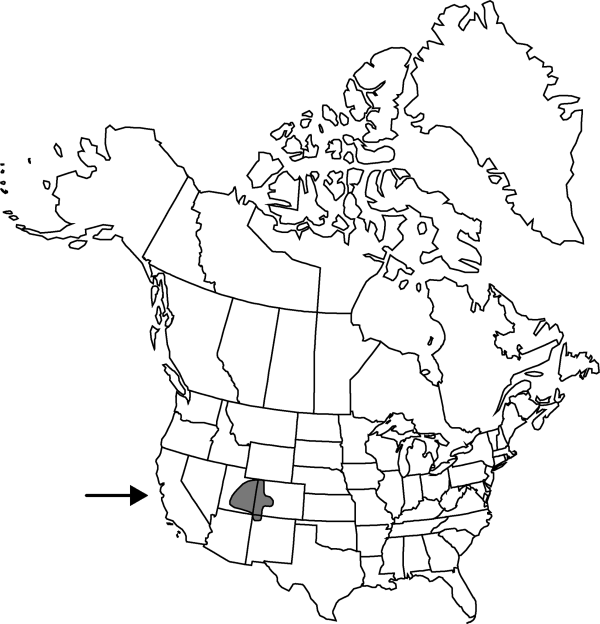Difference between revisions of "Atriplex corrugata"
Bot. Gaz. 16: 345. 1891.
FNA>Volume Importer |
FNA>Volume Importer |
Revision as of 20:02, 24 September 2019
Shrubs dioecious (rarely monoecious), low spreading (often appearing as if prostrate), mainly 0.3–1.5 × 3–15 dm. Leaves persistent, sessile, opposite proximally, alternate distally; blade linear to linear-oblanceolate, or oblong, 3–18 × 2–6 mm, margin entire, apex obtuse. Staminate flowers yellow to brownish, in clusters 3–6 mm wide, borne in spikes 1–8 cm. Pistillate flowers in leafy bracteate spikes 5–15 cm. Fruiting bracteoles sessile or subsessile, panduriform, 3–5 × 4–6 mm, united to beyond middle, margin entire or undulate, apex rounded to acute, densely tuberculate (or smooth). Seeds brown, 1.5 mm wide. 2n = 36.
Phenology: Flowering spring–fall.
Habitat: Saline, usually fine-textured substrates derived from Mancos Shale, Tropic Shale, Morrison, Duchesne River, and other similar formations in mat-atriplex and Castle Valley saltbush communities
Elevation: 1200-2200 m
Distribution

Colo., N.Mex., Utah.
Discussion
Mat-saltbush is known to form intermediates with both Atriplex confertifolia and A. gardneri var. cuneata. This saltbush is a valuable browse plant on the sparsely vegetated clays and silts of eastern Utah, especially on the Mancos Shale exposures, where it is often the only woody vegetation present.
Selected References
None.